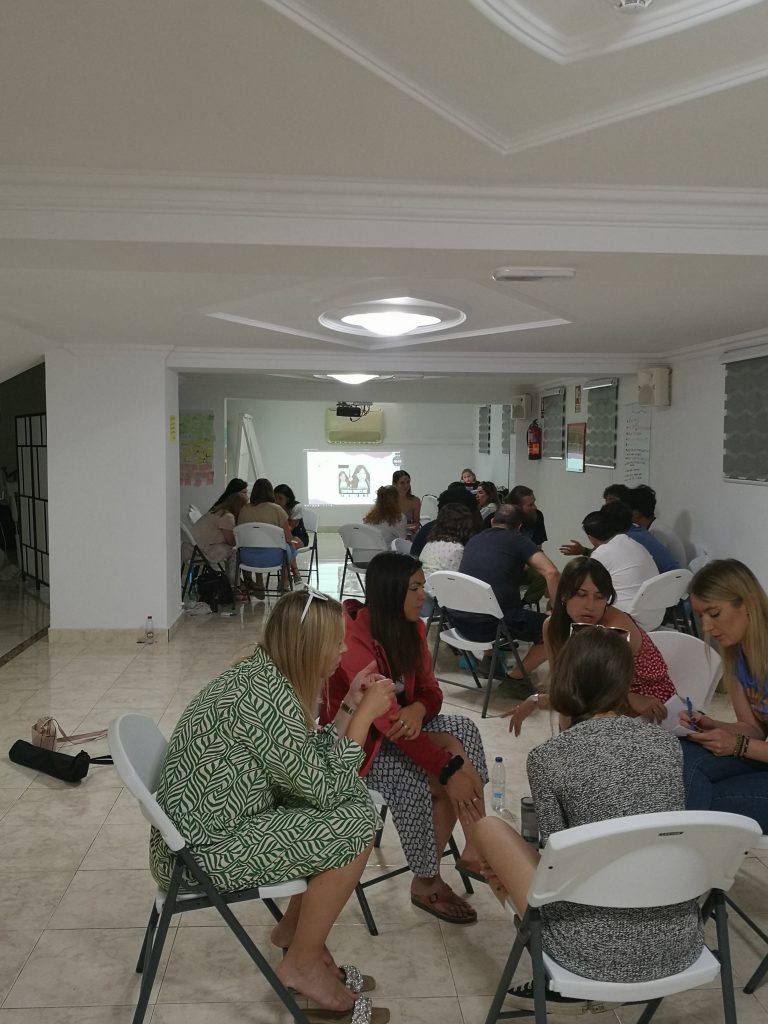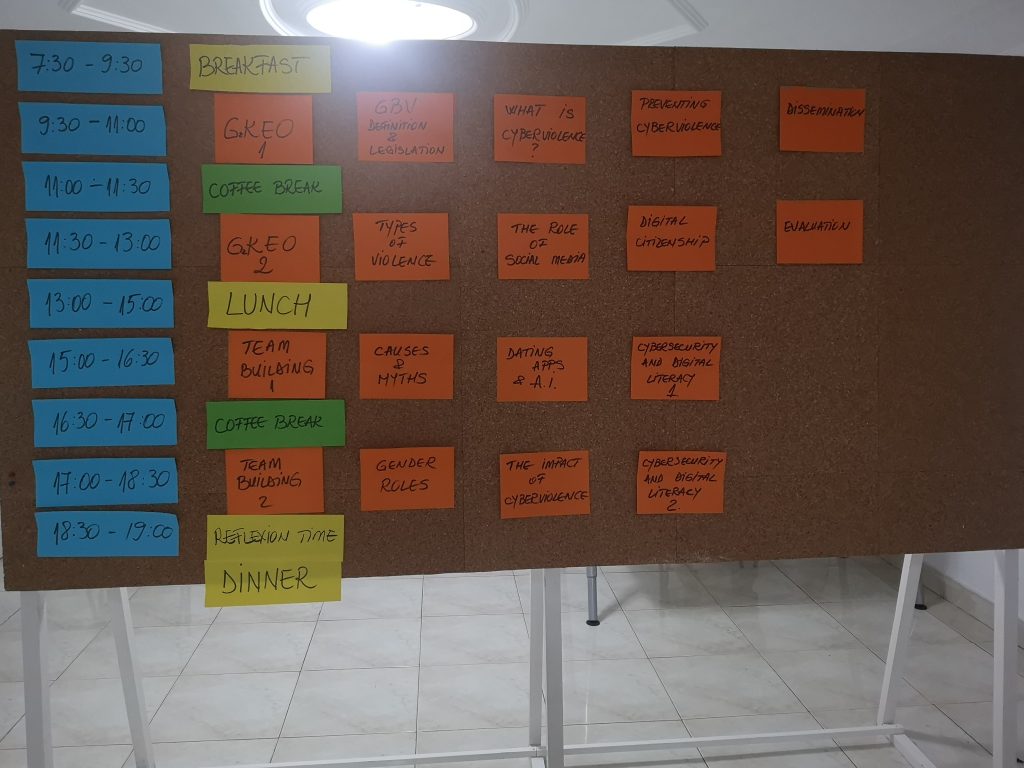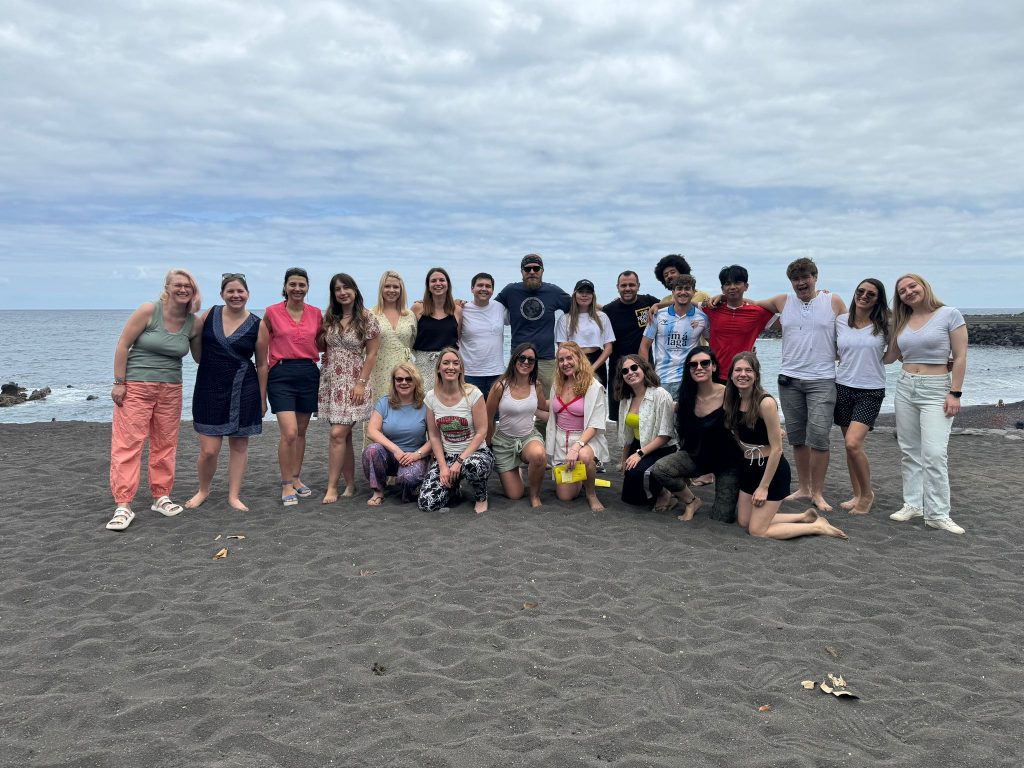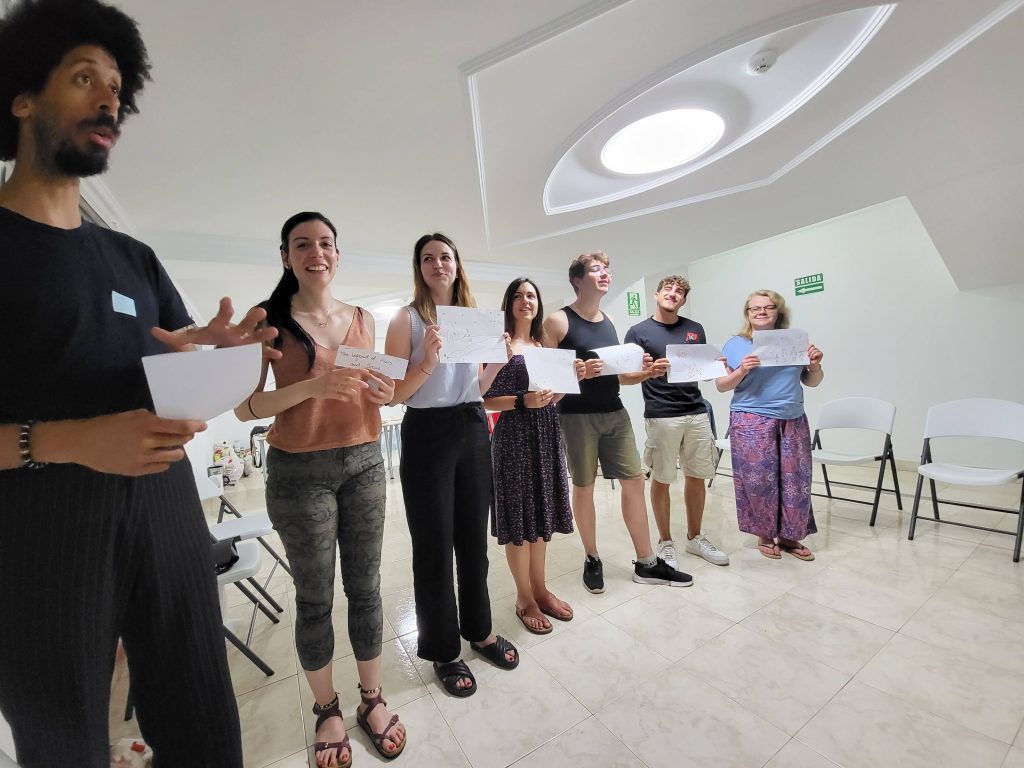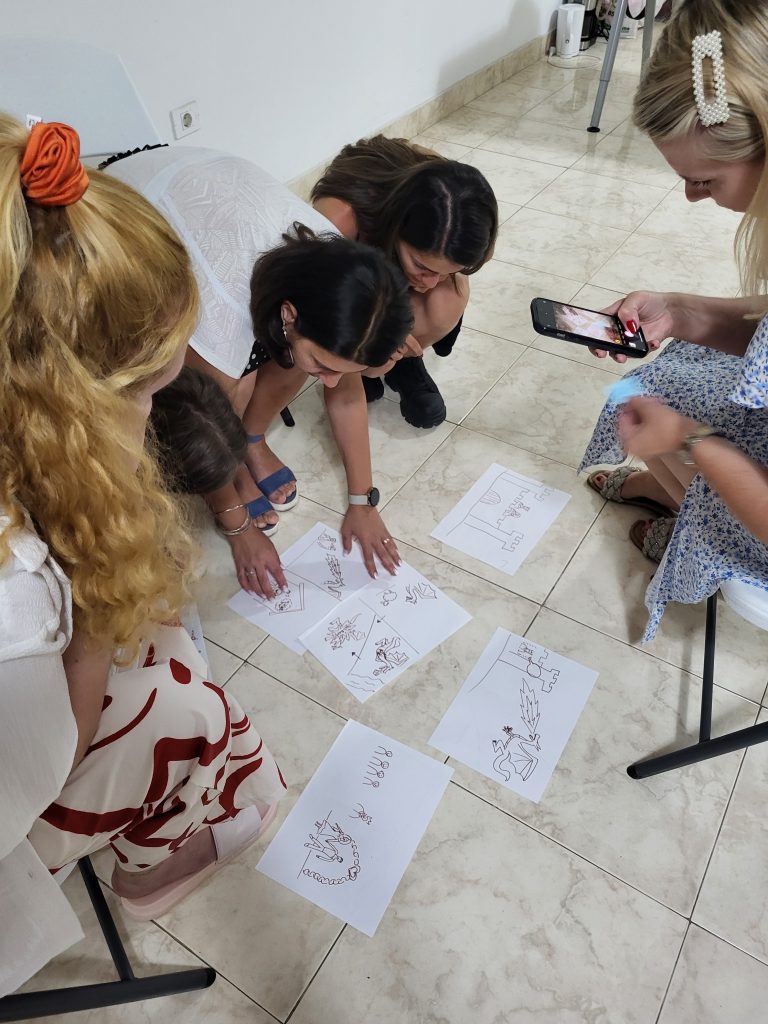
Period: 26.05.2024 – 01.06.2024
Place: Puerto de la Cruz, Tenerife, Spain
Objectives:
- Organize and facilitate a non-formal education-based training course, spanning five days, to enhance the awareness and understanding of 22 participants regarding various aspects of cyber-violence, including its root causes, forms, impact on victims, and the role of social media in perpetuating such behaviour.
- Equip 22 participants with practical skills for safe and responsible online behaviour, including understanding cybersecurity, recognizing phishing attempts, and managing their digital footprint.
- Empower the 22 participants with the knowledge and tools to effectively respond to cyber-violence, including reporting incidents, supporting victims, and using digital platforms for positive advocacy.
- Collaboratively develop a 2 hour workshop design on cyber-violence awareness, prevention, and intervention to serve as a valuable resource for promoting safe and responsible online behaviour within the participants’ communities.
Dissemination
Dissemination report – activities carried out by the participants after the learning experience from Tenerife
Photos of the activity from Tenerife

